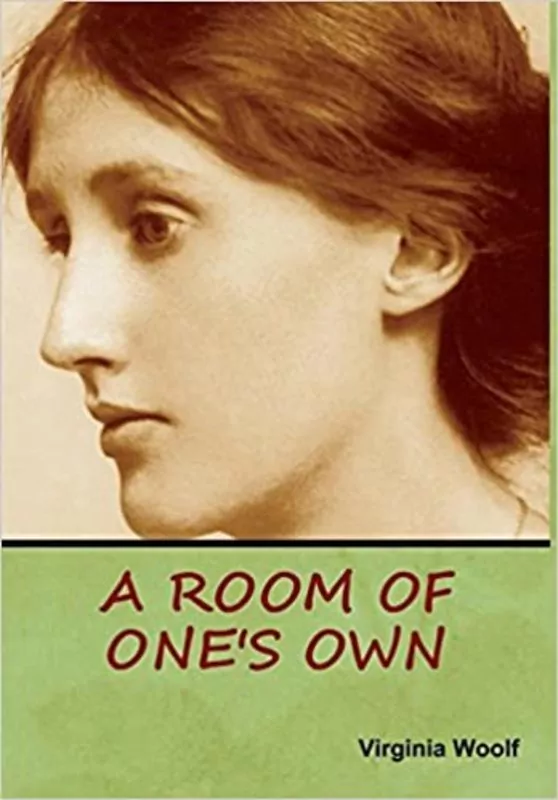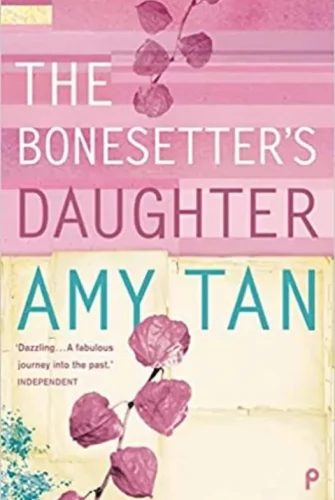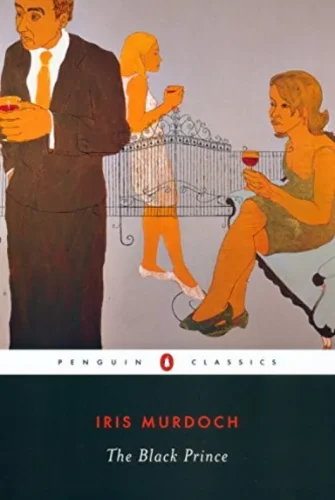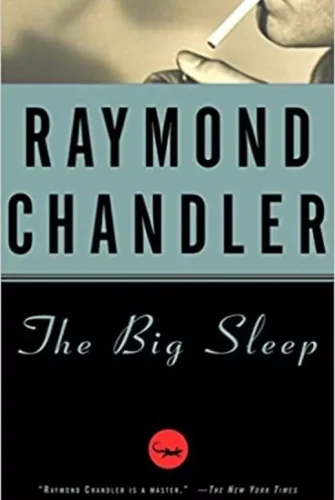The narrative centers on a speaker, who is portrayed without a specific identity, as she grapples with the concept of women and storytelling. She posits the theory that for a female to proficiently craft fiction, she necessitates affluence and an individual space. This ideology is articulated through a partly fictionalized account of the intellectual expedition that led to its formulation. The speaker sets off on a journey of discovery initiated at Oxbridge College. At this juncture, she reflects on the diverse educational opportunities provided to each gender along with significant contrasts in their ways of life.
Allocating a day at the British Library, examining scholarly writings on women, remarkably all authored by men and seemingly composed in a state of irritation. She delves into history and in the insufficiency of substantial information on women’s everyday existence, she resolves to creatively reconstruct their lives. She envisions a character named Judith Shakespeare, epitomizing the unfortunate fate an exceptionally intelligent woman would have encountered in those epochs. With this historical framework, she scrutinizes the works of notable female writers from the 19th century and contemplates the impact of heritage on an aspiring writer. She subsequently proceeds to scrutinize the present condition of literature by reviewing the inaugural novel of one of her contemporaries. The speaker concludes her discourse by encouraging her female spectators to grasp hold of the legacy that had been meticulously handed down to them and to enrich the inheritance for their upcoming generations.

Chapter 1
Woolf is requested to discuss Women and Fiction. She posits that “a woman must have finances and a private space if she is to write fiction,” yet admits that this does not resolve the intricate issue of women’s genuine nature and fiction. She adopts a narrative style to unravel this thesis, recounting the two days before her discourse. Situated by a river at “Oxbridge” (a fictitious locale symbolizing Oxford and Cambridge), the narrator metaphorically equates her ruminations on women and fiction to angling. When her train of thought is interrupted by a security guard enforcing gender-biased regulations, she mourns the loss of her “little fish” of an idea. She acknowledges the tranquility of her environment, but her tranquility is disturbed when she is refused access to a manuscript in the library due to her gender. This rebuff fuels her ire, intensifying her sensation of exclusion. Observing scholarly life, she senses that the university is an insular realm, detached from reality. Pondering over the university’s past, she is hastily drawn back to the present as lunch is served. The sumptuous repast and engaging conversation make her feel buoyant. However, she is startled by the sight of “a cat without a tail,” realizing something is amiss in the conversation. She ruminates on how people’s perspectives and literature have evolved post-World War I, resulting in the challenge of comprehending contemporary poetry. Contrasting this lavish meal with a drab dinner at “Fernham,” a women’s college, she recognizes that the absence of privilege diminishes one’s sense of authority. She experiences dissatisfaction as the discussion there is trivial. Discussing the hardships encountered during the college’s establishment, she compares this with the ample support and centuries-old heritage of male universities. She contemplates women’s historical poverty and contemplates what could have changed if women had been taught to generate and inherit money. She acknowledges the sacrifices demanded for this, and how laws regarded women as possessions. Contemplating how affluence and tradition can influence a writer’s psyche, she concludes the section.
Chapter 2
From Oxbridge, the narrative now transitions to London where the narrator is reflecting on Women and Fiction. She contemplates the inquiries sparked at Oxbridge (“Why did men drink wine and women water? Why was one sex so affluent and the other so destitute? What impact does poverty have on fiction? What circumstances are essential for the creation of artistic works?”) and decides to visit the British Museum to ascertain “the pure fluid, the essential oil of truth.” Astonished by the plethora of books on women scribed under various disciplines in the British Library, she finds no such assemblage on men. She arbitrarily picks a few books to peruse and chances upon a professor’s assertion of “the mental, moral, and physical inferiority of women.” She perceives all these works as clouded by emotions rather than truth. “Why are they angry?” she ponders during lunch, realizing that she too grew angry as the author did. She speculates that men are more preoccupied with affirming their superiority, with women serving as a reflection of their ego for centuries. She is then reminded of her financial predicament while settling the bill. She divulges that she received an annual allowance of five hundred pounds from her aunt, Mary Beton. This inheritance was more instrumental in attaining her independence than the women’s suffrage. It liberated her from the necessity to earn a living and any resentment, enabling her to view men as victims of societal and cultural norms as well. This financial autonomy granted her the “freedom to think of things in themselves.” Back at home, she muses on the value of traditional women’s labor versus men’s. She finds it impractical to gauge the worth of domestic chores as it doesn’t align with any economic value system and its social worth also vacillates “from decade to decade.” She aspires to a future liberated from gender-based labor division. She wonders, “But what relevance has all this upon the topic of my treatise, Women, and Fiction?” as she enters her abode.
Chapter 3
Unsatisfied with her research discoveries at the British Library, the narrator opts to delve into history instead, anticipating unearthing “not opinions but facts”. She opts to delve into English women of the Elizabethan era, a period of considerable male literary accomplishment. She accentuates Shakespeare’s works, remarking their apparent autonomy but ultimately underscoring their link to palpable, human experiences. She discovers scant information about women’s rights of the period, essentially non-existent. The dissonance between the powerlessness of women in actuality and their resilience and intricacy in literature perplexes her. She notes, “A very queer, composite being thus emerges… in real life she could hardly read, could scarcely spell, and was the property of her husband.” This prompts her to meld historical facts with fictional resources to better comprehend Elizabethan women. She concludes, “It would have been impossible… for any woman to have written the plays of Shakespeare in the age of Shakespeare.” To elucidate, she introduces Judith Shakespeare, an envisioned character with equivalent talent to her brother, but devoid of formal education. She, clandestinely writing and obliterating her work out of fear, is expected to conform to societal norms. Denied her plea not to wed, she absconds and pursues a career in acting, but encounters refusal. She ends up pregnant and takes her own life. The narrator asserts that a lady with Shakespeare’s brilliance during that time is inconceivable — an intellect that could translate to excellent prose. She contends that authentic brilliance was seldom found among the working class in that era, and even if present, was frequently obstructed by their social circumstances. She proposes that most women with brilliance were termed sorceresses or lunatics. Theorizing on the mental environment conducive to creativity, she acknowledges the daunting task of producing a masterpiece given societal indifference, distractions, and discouragement. She posits that these obstacles were even more significant for women, who lacked personal space unless they hailed from affluent families. Faced with limited resources and constant reminders of their alleged inadequacy, women would likely have internalized their feelings of inferiority. The storyteller affirms that the artist’s intellect is very responsive to discouragement and external judgments, expressing, “There must be no impediment in it, no external substance left unconsumed.”
Chapter 4
It would have been unattainable for a lady to achieve a state of brilliance in the sixteenth century, the narrator posits. She then delves into the emergence of female scribes from this void in history, commencing with affluent women who had the privilege to scribble and confront societal disapproval. Lady Winchilsea, an early female noble poet, crafted lines articulating her frustration with the status of women, while Margaret of Newcastle squandered her potential on insignificant writings. Bringing attention to Dorothy Osborne, whose correspondence unveils her aversion to female writers, despite her own talent. The true breakthrough arrives with Aphra Behn, the initial woman to challenge societal norms and sustain herself through writing, paving the way for upcoming authors like Jane Austen and George Eliot. The narrator then questions why most female writers veered towards novel writing, despite originating from varying backgrounds and only sharing the aspect of being childless. She posits that the secluded writing spaces and the absence of formal literary education, which honed their skill in character analysis, might have nudged them towards novels. Despite the capacity for other genres, these women yielded exceptional novels. Jane Austen, though reticent about her work, managed to write devoid of bitterness or trepidation. Unlike Austen, Charlotte Bronte’s work discloses her personal tribulations. The narrator contends that a novelist’s integrity lies in their depiction of truth in their prose, a demanding feat that numerous novelists fail to achieve. She speculates on how a writer’s gender could impact their artistic integrity, utilizing Bronte as an example of this hindrance: her personal grievances disrupted her storytelling. Yet, Austen and Emily Bronte transcended such barriers, with their accomplishments deemed miraculous. The narrator believes that the absence of a female literary tradition posed a significant impediment for these pioneering women. The existing male-centric literary style was unsuitable, leaving these women to forge their path. This could explicate their inclination towards novel writing, a form adaptable enough for their requirements. Nevertheless, the narrator anticipates that women will ultimately venture beyond novels, channeling their inherent poetic sense into innovative, unfamiliar forms.
Chapter 5
Surveying modern literature, the narrator observes a surge in female authors producing non-fiction works. She stumbles upon a novel titled Life’s Adventure by a fresh author, Mary Carmichael. Analyzing the influences Carmichael has drawn from past women—both writers and non-writers—she initially critiques her writing style as inferior to Jane Austen’s. Yet, she swiftly alters her perspective, acknowledging Carmichael’s distinctive writing approach. “First she broke the sentence; now she has broken the sequence…she has every right to do both these things if she does them not for the sake of breaking, but for the sake of creating.” The turning point in Carmichael’s book arrives with the phrase, “Chloe liked Olivia.” The narrator is captivated by the atypical portrayal of genuine friendship between women, a rarity in literature. Previously, women were commonly defined by their interactions with men, resulting in a significant oversight in historical and literary narratives. Chloe and Olivia, Carmichael’s characters, also harbor interests beyond domestic life; they toil in a laboratory, altering their relational dynamics. The narrator perceives this as a notable shift, “for if Chloe likes Olivia and Mary Carmichael knows how to express it she will light a torch in that vast chamber where nobody has yet been.” The underplayed experiences of solitary women, largely unexplored in literature, will challenge the capabilities of the English language. The narrator recognizes that Carmichael faces substantial obstacles ahead. Despite her shortcomings compared to Austen or Eliot, she possesses distinct strengths. She exhibits no animosity towards men or discontentment with her circumstances in her writing. “Fear and hatred were almost gone, or traces of them showed only in a slight exaggeration of the joy of freedom.” The narrator concludes that with more time, a private sanctuary, and financial stability, Carmichael could eventually evolve into a poet.
Chapter 6
Awakening to a vista of London, seemingly indifferent to “the future of fiction, the demise of poetry, or the development by the average woman of a prose style entirely reflective of her intellect.” Observing a duo hail a cab and vanish into the cityscape, she discerns a newfound harmony hitherto absent in her intense contemplation. She becomes aware of the discomfort in certain mentalities, where one “is unknowingly withholding something, and gradually the suppression becomes an exertion.” She then muses over a concept of gender unity, akin to Coleridge’s androgynous intellect theory, proposing a mind with both masculine and feminine characteristics. She posits that this equilibrium is the crux of brilliance, clarifying that it’s not about gender affinity but the mechanisms of the intellect. Conversely, her age seems more gender-aware than any preceding, resulting in an “extraordinary craving for self-assertion” in men, evident in Mr. A’s tale. This self-aware masculinity is also conspicuous in the burgeoning introspection among women. This self-awareness is a pivotal feature of fascism, but neither men nor women are culpable. The narrator concludes that pondering over one’s gender is deleterious for anyone penning their thoughts. At this juncture, Woolf takes charge of her narrator and addresses potential critiques about the character’s “flaws and weaknesses.” She refrains from assessing the respective abilities of male and female writers, contending that artists should eschew such juxtapositions. She acknowledges one could argue she’s fixated on tangible things, but asserts that minus financial means or education, aspiring poets confront formidable obstacles. She summarizes: “Intellectual liberty hinges on material things. Poetry hinges on intellectual liberty. And women have perpetually been destitute… Women, therefore, have not had an iota of a chance to compose poetry. That’s why I’ve laid so much emphasis on money and a retreat of one’s own.” She affirms that quality writing is advantageous for society and urges her audience to scribble, underscoring the sway books wield over one another. She also reminds them to acknowledge the advancements made by female writers and to write not solely for themselves but to pave the way for future female writers.
https://www.mostrecommendedbooks.com/a‑room-of-one-s-own-summary


